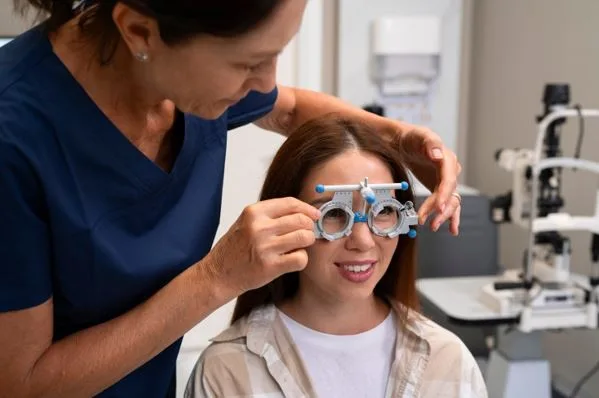What Patients Should Know About Astigmatism Treatments in Sydney
Astigmatism is one of the most common vision conditions, affecting people of all ages. It occurs when the cornea or lens has an irregular shape, preventing light from focusing evenly on the retina. This leads to blurred or distorted vision at both near and far distances. The good news is that effective solutions are available, ranging from corrective lenses to advanced surgical procedures. For patients considering astigmatism treatments in Sydney, understanding the available options, benefits, and aftercare is an important step toward achieving clearer sight.
This article explains what astigmatism is, the treatment choices available, and what to expect when undergoing eye surgery in Sydney for this condition.
Understanding Astigmatism
What Causes Astigmatism?
Astigmatism happens when the cornea—the transparent front layer of the eye—or the lens inside the eye is not perfectly round. Instead of a smooth, even curve, it may be shaped more like a football than a soccer ball. This uneven curvature bends light unevenly, causing images to appear blurred.
Common Symptoms
- Blurred or distorted vision
- Headaches or eye strain
- Difficulty seeing at night
- Squinting to see clearly
If left untreated, astigmatism can affect daily activities such as reading, driving, or using digital devices.
Non-Surgical Astigmatism Treatments
Eyeglasses
The most common and simplest treatment is prescription eyeglasses. Specially designed lenses correct the uneven refraction, providing clear vision. Many patients start with glasses as a first step before considering other options.
Contact Lenses
Toric contact lenses are specifically designed for astigmatism. They provide more precise correction compared to regular lenses. Some patients prefer them for cosmetic reasons or greater visual freedom compared to glasses.
Orthokeratology (Ortho-K)
This involves wearing specially designed rigid contact lenses overnight to temporarily reshape the cornea. While not a permanent solution, it can provide clear vision during the day without the need for glasses or lenses.
Surgical Astigmatism Treatments in Sydney
For patients seeking a long-term solution, surgical options may be recommended. Clinics offering eye surgery in Sydney provide advanced procedures tailored to individual needs.
LASIK Surgery
Laser-Assisted In Situ Keratomileusis (LASIK) is one of the most popular procedures for astigmatism. A laser reshapes the cornea, allowing light to focus correctly on the retina. It is a quick procedure with a relatively short recovery time.
PRK (Photorefractive Keratectomy)
PRK is another laser-based treatment. Unlike LASIK, which creates a corneal flap, PRK removes the outer layer of the cornea before reshaping it. This method may be recommended for patients with thinner corneas.
LASEK (Laser Epithelial Keratomileusis)
LASEK combines aspects of LASIK and PRK. It involves loosening the outer corneal layer before reshaping the underlying tissue with a laser.
Toric Intraocular Lenses (IOLs)
For patients with high levels of astigmatism or those undergoing cataract surgery, toric IOLs can be implanted inside the eye. These lenses replace the natural lens and provide clear, long-term vision correction.
Small Incision Lenticule Extraction (SMILE)
SMILE is a newer laser eye surgery option available in Sydney. It involves creating a small disc-shaped piece of tissue inside the cornea and removing it through a tiny incision, effectively reshaping the cornea.
Benefits of Surgical Treatment
- Long-Term Vision Correction: Many patients achieve permanent improvement.
- Freedom from Glasses or Lenses: Reduced dependence on corrective eyewear.
- Improved Quality of Life: Clearer vision enhances daily activities, sports, and professional tasks.
- High Success Rates: Advanced technologies used in Sydney clinics ensure safe and predictable results.
What Patients Should Expect Before and After Eye Surgery
Pre-Surgery Assessment
Before undergoing astigmatism treatments in Sydney, patients receive a detailed eye examination. This includes measuring corneal thickness, mapping its curvature, and assessing overall eye health.
During the Procedure
Most laser surgeries take less than 30 minutes for both eyes. Patients are usually awake but receive numbing eye drops to minimise discomfort.
Recovery Period
- Mild discomfort, dryness, or sensitivity to light is common in the first few days.
- Vision usually improves within a few days to weeks, depending on the type of surgery.
- Follow-up appointments ensure proper healing and results.
Risks and Considerations
Although modern eye surgery in Sydney is safe, patients should be aware of potential risks:
- Dry eyes
- Glare or halos, especially at night
- Temporary visual fluctuations
- Rare complications, such as infection or under-correction
Discussing these risks with an ophthalmologist helps patients make informed decisions.
Maintaining Eye Health After Treatment
Follow Post-Surgery Instructions
Using prescribed eye drops, avoiding rubbing the eyes, and protecting them from dust or water is crucial for healing.
Regular Eye Check-Ups
Even after successful surgery, regular eye examinations help monitor long-term eye health.
Healthy Lifestyle Habits
Protecting eyes from UV rays, eating a balanced diet rich in vitamins, and staying hydrated all support lasting vision quality.
Choosing the Right Clinic in Sydney
When considering astigmatism treatments in Sydney, choosing a reputable clinic with experienced specialists is essential. Factors to consider include:
- Surgeons’ qualifications and experience
- Availability of advanced laser technology
- Patient reviews and success stories
- Personalised treatment plans based on individual needs
Final Thoughts
Astigmatism is a common condition, but it does not have to limit quality of life. From glasses and contact lenses to advanced procedures like LASIK, PRK, and toric lens implants, patients have multiple options to restore clear vision.
For those exploring eye surgery in Sydney, consulting a qualified ophthalmologist ensures the best choice of treatment, tailored to individual needs. With the right approach, patients can look forward to sharper vision, reduced reliance on corrective eyewear, and a more confident daily life.






